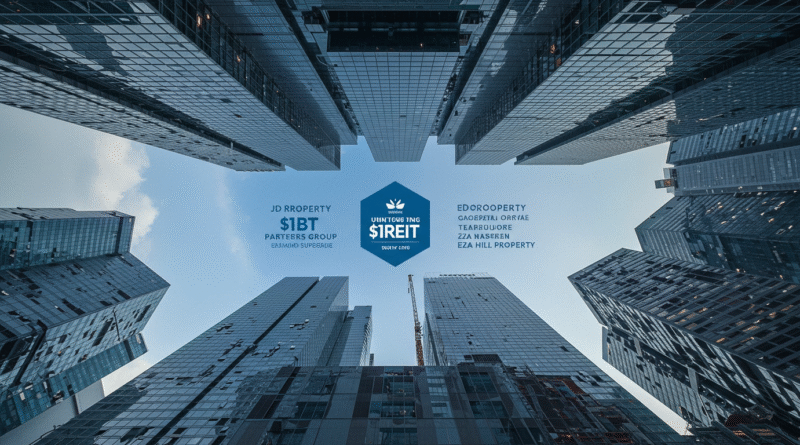Singapore $1B REIT launch
The announcement of a Singapore $1B REIT launch is drawing attention from global investors. A consortium made up of JD Property, Partners Group, and EZA Hill Property is preparing to introduce a real estate investment trust valued at over $1 billion.
The vehicle is expected to list on the Singapore Exchange as early as next year, positioning Singapore as an even stronger hub for industrial and logistics assets.
Why Singapore $1B REIT Launch Matters
The planned listing is more than a financial milestone—it reflects a larger trend of investor appetite for resilient asset classes. Industrial and logistics real estate, which proved essential during the pandemic, continues to attract long-term institutional capital.
By packaging high-quality properties into a REIT structure, the consortium gives investors exposure to a sector that blends stability with growth.
CapitaLand Ascendas Assets in Focus
The REIT will include properties acquired from CapitaLand Ascendas REIT, one of Asia’s largest and most respected real estate investment trusts. These assets—spanning warehouses, logistics hubs, and light industrial facilities—are critical to the regional supply chain and align with Singapore’s strategy of strengthening its position as a gateway to Asia.
Economic and Market Impact
If successful, the listing could attract more foreign capital into Singapore’s already vibrant REIT market, which ranks among the most developed in Asia. Analysts suggest the move could encourage other global property players to tap into Singapore’s regulatory framework and liquidity. For policymakers, it also underscores the country’s ability to adapt and expand its financial toolkit in a rapidly changing global economy.
Aerocity Real Estate Development Boom Worth $29.5 Billion
Ripple Effect on Other Markets
The launch of a $1B REIT in Singapore may seem distant, but the implications stretch far beyond Asia’s financial hub. For Nigeria and Africa, where the REIT market is still in its infancy, this signals the growing role of securitized real estate as a tool for unlocking capital.
Nigeria, in particular, faces a financing gap in housing, infrastructure, and logistics. A thriving REIT culture could attract global investors into African property markets, provide liquidity for developers, and create opportunities for ordinary citizens to invest in real estate without needing massive capital.
However, the climate dimension is equally important. The assets in Singapore’s REIT are tied to logistics and industrial real estate, sectors that consume large amounts of energy. Globally, this raises the stakes for making warehouses, data centers, and supply chain hubs more sustainable.
If Africa’s emerging REITs follow a similar path without green safeguards, they risk deepening carbon footprints at a time when the continent is already experiencing floods, droughts, and rising temperatures.
For Nigerian cities like Lagos and Abuja, REITs could become a vehicle to fund climate-smart infrastructure—green buildings, solar-powered estates, and flood-resilient housing—if regulation and innovation align. The alternative is a speculative real estate boom that fuels emissions and leaves communities more vulnerable.
Enugu Real Estate Takes Off with Aviation Boom
Conclusion
Singapore’s REIT launch is more than financial news; it is a signal of where global capital is flowing. For Africans, it offers both a warning and an opportunity: to prepare policies that channel real estate investment into sustainable growth rather than climate risk. For global investors, it highlights the urgency of integrating ESG standards into REIT structures, since the assets they fund today will shape the livability and resilience of tomorrow’s cities.

